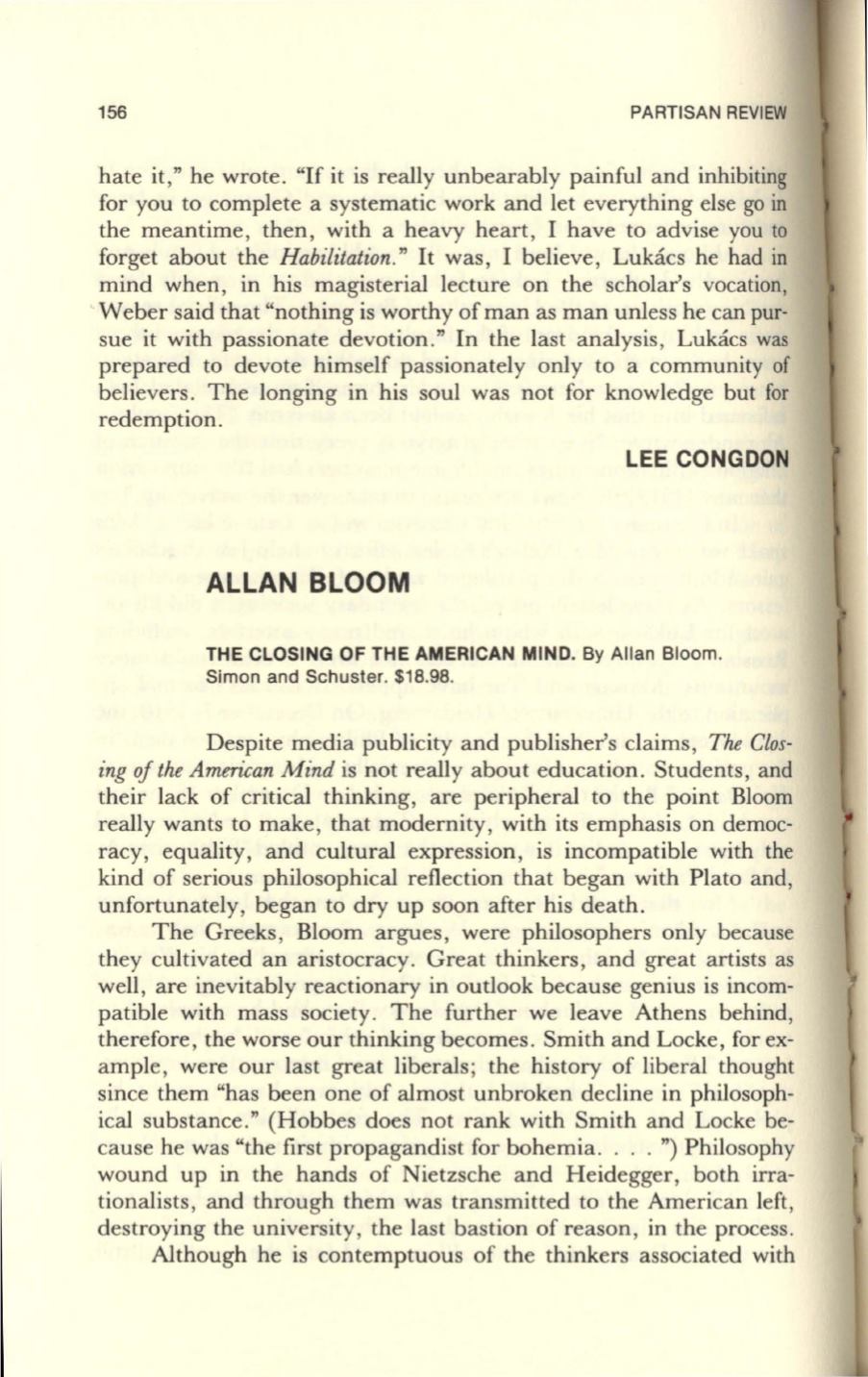
156
PARTISAN REVIEW
hate it ," he wrote.
"If
it is really unbearably painful and inhibiting
for you to complete a systematic work and let everything else go
in
the meantime , then, with a heavy heart, I have to advise you to
forget about the
Habilitation. "
It was , I believe, Lukacs he had in
mind when, in his magisterial lecture on the scholar's vocation,
Weber said that "nothing is worthy of man as man unless he can pur–
sue it with passionate devotion ." In the last analysis , Lukacs was
prepared to devote himself passionately only to a community of
believers. The longing in his soul was not for knowledge but for
redemption.
LEE CONGDON
ALLAN BLOOM
THE CLOSING OF THE AMERICAN MIND.
By Allan Bloom.
Simon and Schuster. $18.98.
Despite media publicity and publisher's claims,
The Clos–
ing of the American Mind
is not really about education . Students , and
their lack of critical thinking, are peripheral to the point Bloom
really wants to make, that modernity, with its emphasis on democ–
racy, equality, and cultural expression, is incompatible with the
kind of serious philosophical reflection that began with Plato and,
unfortunately, began to dry up soon after his death.
The Greeks, Bloom argues, were philosophers only because
they cultivated an aristocracy. Great thinkers , and great artists as
well, are inevitably reactionary in outlook because genius is incom–
patible with mass society. The further we leave Athens behind,
therefore, the worse our thinking becomes. Smith and Locke, for ex–
ample, were our last great liberals; the history of liberal thought
since them "has been one of almost unbroken decline in philosoph–
ical substance." (Hobbes does not rank with Smith and Locke be–
cause he was "the first propagandist for bohemia.... ") Philosophy
wound up in the hands of Nietzsche and Heidegger, both irra–
tionalists, and through them was transmitted to the American left,
destroying the university, the last bastion of reason, in the process.
Although he is contemptuous of the thinkers associated with


